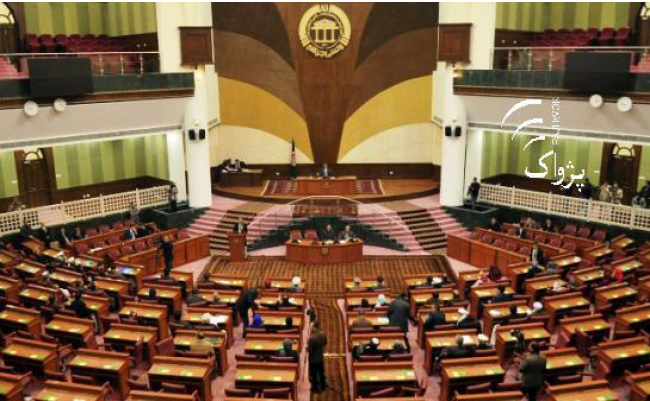Parliament is widely recognized as the pivotal institution of democracy and everybody agrees on what the functions of a parliament are. Nobody doubts that they are to embody the will of people in government, and carries all their expectations that democracy will be truly responsive to their needs and help to solve the most pressing problems that confront them in their daily lives. As the elected body that represents society in all its diversity, parliaments have a unique responsibility for reconciling the conflicting interests and expectations of different groups and communities through the democratic means of dialogue and compromise. As the key legislative organ, parliaments have the task of adapting society’s laws to its rapidly changing needs and circumstances. As the body entrusted with the oversight of government, they are responsible for ensuring that governments are fully accountable to the people. For parliaments to be truly representative, elections must be free and fair. Citizens must have access to information about parliamentary proceedings, legislation, and policy, and be able to engage in continual dialogue with parliamentarians.Over all, the effective parliaments shape policies and laws which respond to the needs of citizens, and support sustainable and equitable development.
However, there are no two parliaments the same in the world; they differ in form, role and functioning. They are shaped by the history and culture of each individual country. In Afghanistan, The Parliament consists of Wolesi Jirga (Lower House) and Mesharano Jirga (Upper House) with a guaranteed representation of women. Lower house is composed of 249 members where 10 seats are allocated for the elected representatives of the nomads who are elected for five years term. Afghanistan adopted Single Non-Transferable Vote (SNTV) system for its parliamentary elections. The 239 seats of lower house were divided among provinces by Joint Election Management Board (JEMB) on the basis of their population which was determined by the central census department of Afghanistan. Each province was allocated at least two seats. According to the constitution, the number of seats to be allocated to women in lower house should be twice the number of the provinces in the country. Thus at least 68 seats in lower house were reserved for women - almost 25 per cent. The Constitution provides that even if a woman could not secure the majority vote, she can become part of the parliament through quota system. Afghan constitution also guarantees 17 per cent seats of the Mesharano Jirga for women. The President is constitutionally obliged to select 17 women out of his stipulated quota of 34 seats.
190 of 193 countries in the world now have some form of functioning parliament, accounting for over 46,000 representatives. The existence of a parliament is as important as that democracy cannot exist without a parliament. In modern Afghanistan, The first parliamentary elections were held on September 18, 2005, after a delay of one year. There was tough competition among 2800 candidates for 249 seats of the lower house which showed the high degree of the interest in the election. Candidates from different political and ideological backgrounds participated and made their way to the parliament. Afghan elections were based on Single Non-Transferable Vote system. The candidates were not allowed to contest the elections as formal representatives of any political or religious parties.
Majority of the Afghans were optimistic that parliament would be a good omen for them and considered it a good system for their coming generations. People expected that the new parliament will balance the power of executive and stop the widespread corruption in the administration and will protect the Islamic identity of the state. They expected that parliament could overcome all the challenges facing the nation both from within and without. They believed that their voices, aspirations and wishes will have a way to the top leadership through the Parliament. Some women, on the other hand, expected the parliament to give them representation in decision making as there were quota reserved for them.
Unlike the expectations, they have been faced with dissimilar challenges particularly in last two years. They were blamed for being involved in lawlessness, being expired their legal terms of duty, blocking their decisions by government and also being targeted by terrorists. According to their legal power, they have dismissed a number of ministers due to shortcomings in their performance and their failure to spend all allocated budgetary funds but the Afghan Presidential Palace has criticized the dismissal of the ministers thereafter sent the case to the Supreme Court for law interpretation yet the destiny of dismissed ministers are not clear and still the several ministries are run by caretakers.
Meanwhile, the Research Institute for Women, Peace and Security (RIWSP) on Tuesday issued its fourth annual report on the performance of the Wolesi Jirga (Lower House of Parliament) and said that last year parliament performed better with legislation, but its oversight on the performance of government remained weak and that lawmakers failed to ensure true representation of their clients. According to the report, lawmakers in parliament sometimes considered their ethnic background when dealing with impeachments and summoning sessions. The report states that the lawmakers continued to grapple with problems while setting up their internal rule procedures and absence of the lawmakers from parliamentary sessions also undermined access of their clients to their representatives. “Holding meetings without reaching a consensus, leaving meetings before concluding the meetings, underestimating the house procedure, involvement of the lawmakers in their personal business, and leaving the meetings without getting an answer to the question asked during the summoning sessions are the main issues,” the report stated. “There are shortcomings and deficiencies, we need the topics debated to be implemented and executed including the implementation of the approvals and the laws,” said MP Dawoud Kalakani.

